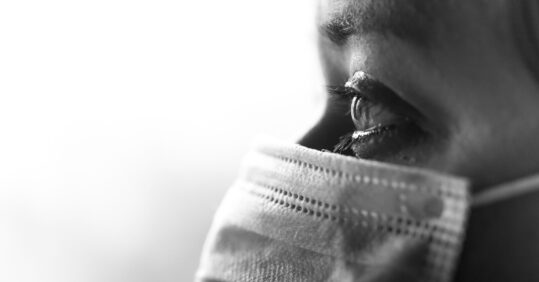Nursing leaders call for safety of health workers in international conflict

Nursing leaders have appealed to combatants and governments involved in the Israel and Palestine conflict to ‘respect’ access to healthcare facilities and ensure the safety of civilians and nurses working in the region.
The calls from both the International Council of Nurses (ICN) and Royal College of Nursing (RCN) following bombing of the Al-Ahli Baptist Hospital in Gaza, which the ICN said had killed ‘hundreds’ of people including injured patients, healthcare workers and displaced persons.
ICN president Dr Pamela Cipriano said the organisation ‘condemns all forms of violence, attacks on healthcare workers, hospitals and ambulances working in conflict zones, whose sole aim is to provide care, treatment, and comfort to the sick, injured and dying’.
She said the ICN called on ‘all governments and combatants to uphold the international laws that protect health workers’.
‘The violation of health worker rights is both a health and humanitarian crisis,’ said Dr Cipriano.
Related Article: BREAKING: Nurses to staff neighbourhood health centres under 10-year plan
‘International humanitarian law must not only be respected but applied on the ground to protect nurses and other health workers at the heart of our health care systems.’
ICN chief executive Howard Catton added: ‘We deplore the violence and bombings which have caused so much death and destruction; we stand in solidarity with the nurses at the frontlines; and we call for peace and reconciliation.
‘We urge all parties involved in the conflict and the international community to do everything in their power to protect the safety of all of those who often place themselves in mortal danger to care for others.
‘Access to healthcare and the delivery of humanitarian assistance must remain a priority for all concerned in response to the growing insecurity, health needs and suffering.’
Meanwhile, RCN chief nurse Professor Nicola Ranger also called on all parties involved in the conflict to respect international humanitarian law and protect nurses and healthcare facilities.
‘We continue to watch the unfolding events in Israel and Gaza in horror,’ she said.
‘This week, we have seen more abhorrent, inhumane atrocities committed against civilians and now healthcare workers.’
She added: ‘Nursing staff and their colleagues have been killed or injured working in desperate circumstances trying to care for patients and provide continued access to treatment.’
Professor Ranger highlighted that under Geneva Conventions law the ‘killing of civilians is prohibited and the sick and wounded must be cared for’.
Related Article: NHS Unite members in Wales reject pay award and signal appetite for strikes
‘Nursing staff must be able to work without fear of violence,’ she added.
‘At the RCN, we stand with other global health organisations to condemn every attack on health care workers and their patients and call for all parties in the conflict to abide by their legal obligations under international humanitarian law.
‘This means that they must protect access to healthcare, which is a human right, and ensure the safety of civilians and health care workers.’
The RCN added that it was there to help all its members with advice and support 365 days a year.
‘We know many RCN members will be concerned for family and friends in the area, and many more will find news coming out of the Middle East distressing,’ the union acknowledged.
And Professor Ranger added: ‘This is an emotionally fraught time and there may be different views on the conflict.’
Related Article: New ‘first-of-its-kind’ adult social care nursing faculty
Members are ‘reminded to be respectful of one another’s perspectives’ and to continue to work within the Nursing and Midwifery Council Code.
‘The RCN is committed to providing an exceptional standard of care, advice and support to all members who seek help from us, regardless of their political or religious views,’ she said.

See how our symptom tool can help you make better sense of patient presentations
Click here to search a symptom




